Search Results
Search
Filter results
Advanced Filters
Your search returned 883 Solutions
-
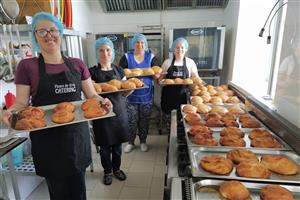
A catering service training and vocation programme
Floare de Cireş is a catering service in the town of Razeni in Modava founded in 2012 to give disadvantaged young people a chance to get their first job. In 2015 the project was extended to include a workplace training programme, which more than 100 people with disabilities had completed by 2020.
Eco-Razeni Association, Floare de Cireş, Moldova -
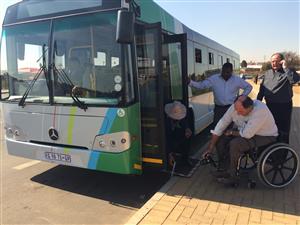
Accessible public transport strategies for 13 major municipalities
The strategy was developed to guide, support and monitor municipalities in the implementation of accessible public transport systems. It includes new Universal Design standards for the whole travel chain and covers both access to information and to the services themselves for people with different disabilities.
South African Department of Transport, South Africa – Department of Transport – The Implementation Strategy to Guide the Provision of Accessible Public Transport Systems in South Africa, South Africa -
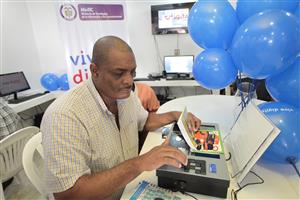
Plan Vive Digital is a national plan to increase both Internet access and Internet usage. One of its specific objectives is to improve universal access to ICT. More than 80 initiatives proactively address vulnerable groups, including people with disabilities, in order to promote their educational, labour and social inclusion.
Colombian Ministry of Information and Communication Technology, Colombia -
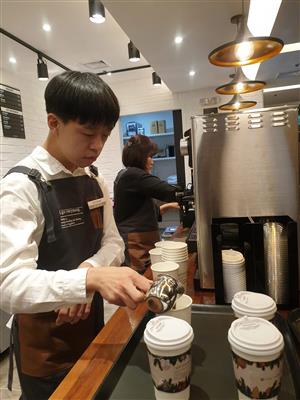
Transforming sheltered workshops to offer vocational training and employment support
Job Plus is a ‘training-employment-retraining-employment-re-employment’ programme for people with developmental disabilities to live and work independently. The project provides internships, short term work experience, and support services. Since 2018, 34 participants have found employment.
Sohwa Aram Center, Job Plus, South Korea -
ACCESS AUDITS UNDER THE ACTION PLAN TOWARDS KUALA LUMPUR AS ACCESSIBLE CITY
The Action Plan towards Kuala Lumpur as Accessible City sets out an implementation framework including workshops, access auditing and a holistic focus on all three stages of the construction process: design, construction and post-construction. It highlights three priority areas: legislation, enforcement and monitoring, and awareness rising.
Kuala Lumpur City Hall, Kuala Lumpur: Enforcing accessibility, Malaysia -
Meaningful employment through support
The decree defines, for the first time, supported employment and provides for ways of accessing it. By developing an individualised workplace adaptation plan with the help of specialised job coaches, the programme provides guidance, advice and support, specific training, monitoring and evaluation of the worker’s process of integration.
Ministry of Health, Social Services and Equality of Spain, Meaningful employment through support, Spain -
FRAMEWORK AGREEMENT BETWEEN THE INSTITUTE OF THE ELDERLY AND SOCIAL SERVICES AND FUNDACION ONCE
The Spanish Ministry and the private Fundación ONCE have joined forces to promote universal accessibility. A framework agreement lays out the respective financial contributions. Both partners are allowed to collaborate with other public and non-profit entities, and to apply for funding and technical support.
Ministry of Health, Social Services and Equality of Spain, Public-private partnership for accessibility, Spain -
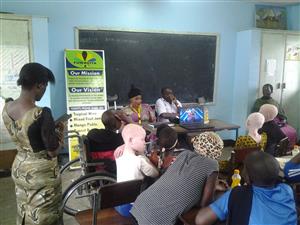
Entrepreneurship training programme for women with disabilities
FUWAVITA was founded in 2018 by Aneth Geranda Isaya, the first deaf person to graduate from university in Tanzania. Aneth teaches women with disabilities to produce handicrafts and food that they can sell. By 2020, 500 women had successfully completed the economic generation training.
FUWAVITA - Tanzania Joy Women Entrepreneurship for the Deaf, FUWAVITA, Tanzania -
Making schools accessible for children with physical disabilities in Afghanistan
The project addresses the need for accessible school buildings for children with disabilities by developing inclusive educational environments with accessible ramps, handrails, washing rooms, and drinking water installations. As a result, from 2013 to 2016 more than 3,000 children with disabilities were able to access education.
AOAD - Accessibility Organization for Afghan Disabled, Afghanistan -
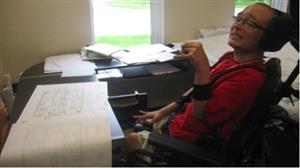
Providing summer internships for young people with disabilities
Community Living Sarnia-Lambton operates a variety of programmes supporting employment for people with disabilities. One such programme is Summer Employment Transitions, whereby young people (aged 16 to 29) are placed in summer internships supported by job coaches and paid by their employers.
Community Living Sarnia-Lambton, Summer Employment Transitions, Canada
- Page 1
- Page 2
- Page 3
- Page 4
- Page 5
- Page 6
- Page 7
- Page 8
- Page 9
- Page 10
- Page 11
- Page 12
- Page 13
- Page 14
- Page 15
- Page 16
- Page 17
- Page 18
- Page 19
- Page 20
- Page 21
- Page 22
- Page 23
- Page 24
- Page 25
- Page 26
- Page 27
- Page 28
- Page 29
- Page 30
- Page 31
- Page 32
- Page 33
- Page 34
- Page 35
- Page 36
- Page 37
- Page 38
- Page 39
- Page 40
- Page 41
- Page 42
- Page 43
- Page 44
- Page 45
- Page 46
- Page 47
- Page 48
- Page 49
- Page 50
- Page 51
- Page 52
- Page 53
- Page 54
- Page 55
- Page 56
- Page 57
- Page 58
- Page 59
- Page 60
- Page 61
- Page 62
- Page 63
- Page 64
- Page 65
- Page 66
- Page 67
- Page 68
- Page 69
- Page 70
- Page 71
- Page 72
- Page 73
- Page 74
- Page 75
- Page 76
- Page 77
- Page 78
- Page 79
- Page 80
- Page 81
- Page 82
- Page 83
- Page 84
- Page 85
- Page 86
- Page 87
- Page 88
- Page 89